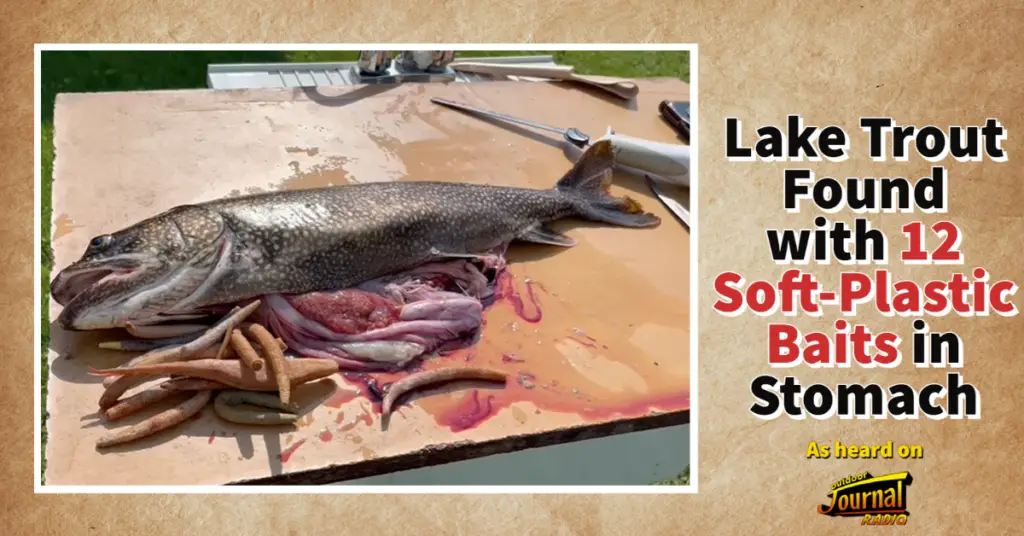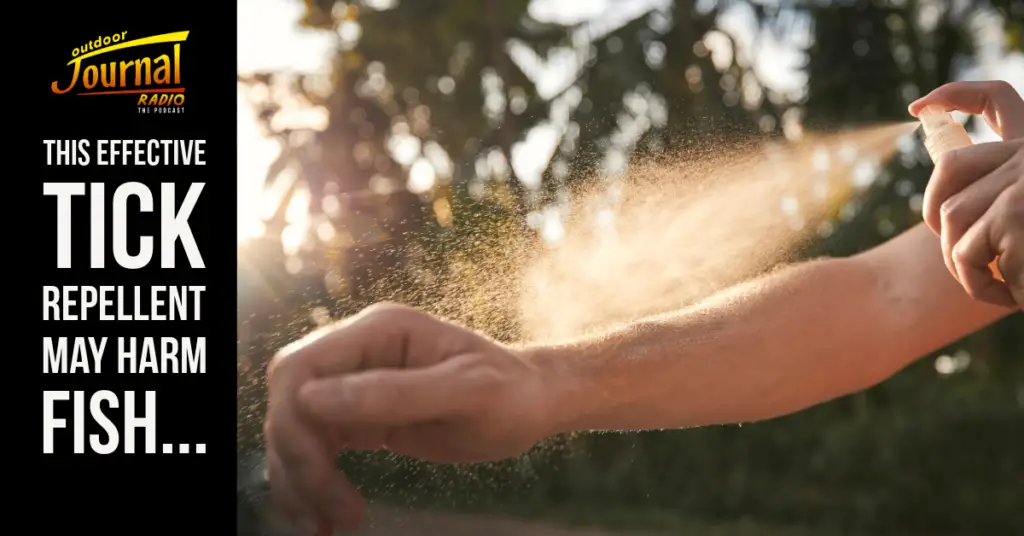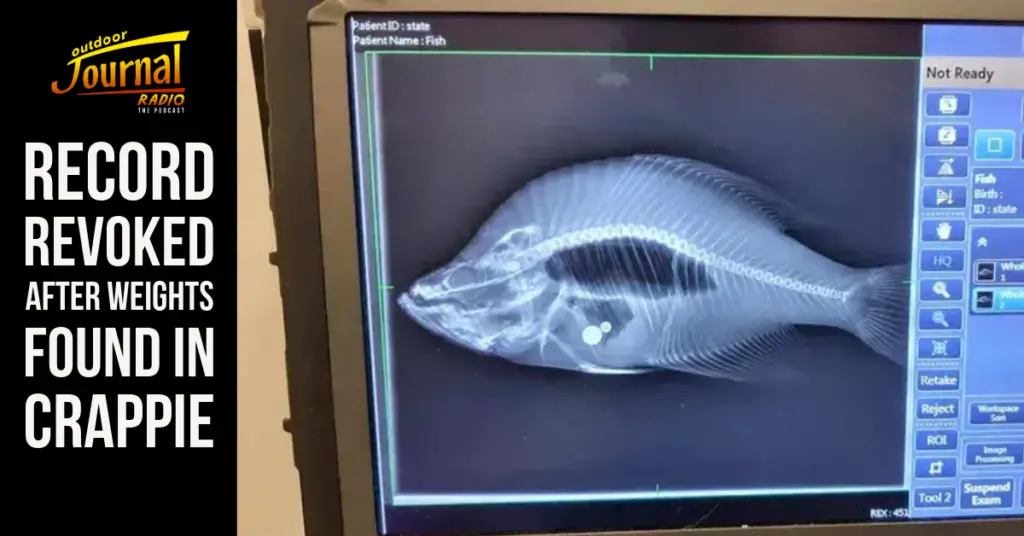As heard on the latest episode of Outdoor Journal Radio, angler Barry Casselman found an unwelcomed surprise this summer when cleaning a 6-pound Lake Trout in eastern Ontario.
While inquisitive anglers may be used to finding interesting items in their catch’s stomachs (crayfish, burbot, mice, etc.), this fish was found carrying 12 discarded artificial baits – nearly 8 ounces of soft plastic.
And this wasn’t the first something like this had happened. Just a few years earlier, Cassleman caught three plastics in two more Charleston Lake Lake Trout, spurring him to raise awareness for the issue and call for anglers to take responsibility for their discarded baits.
During our latest podcast, Pete Bowman echoed this message, saying that “nowadays we know better than that. (soft plastic baits) should be treated like line, throw them in the bottom of your boat and throw them in the garbage when you get home.”
How Long Do Soft Plastics Take to Decompose?
Another point mentioned by Pete and Steve during the show is that modern soft-plastic baits are far from biodegradable and that if fish are willing to eat it on a hook, they are more than willing to eat the without one.
In fact, a Maine study from 2011 showed exactly this, finding that. in a controlled study, 63% of Brook Trout voluntarily ate soft plastics even when presented with natural options and 12% of these fish consumed more than 10% of their body mass in plastic.
Furthermore, the study also found that these lures are often retained by the fish for up to 13 weeks and can even stay with the fish for the entirety of their lives.
How do you think we should be addressing this issue? Are biodegradable baits the future of fishing? Let us know in the comments below!








4 Responses
It makes you wonder just how many other fish out there are suffering from a similar problem of indigestion. since soft plastics have been readily available for quite a while in the fishing industry. Biodegradable soft plastic baits should be mandatory, not just for the environments sake, but have the ability to be digested by fish. In essence, take the plastic out of the equation while integrating a food based technology.
I think professor Pennell needs to come up with a concoction!
This should be mandatory for sure. Do you eat plastic hot dogs etc. Plastic is just another way to kill fish very slowly. Plastic worms or baits shouldn’t last more than a day or two once wetted in the water. The bites are just as plentiful on live bait here in Algoma.
Cheers and good weather.
Thanks for the response Tuggr, Algoma rocks!